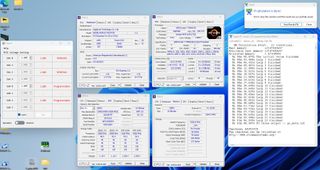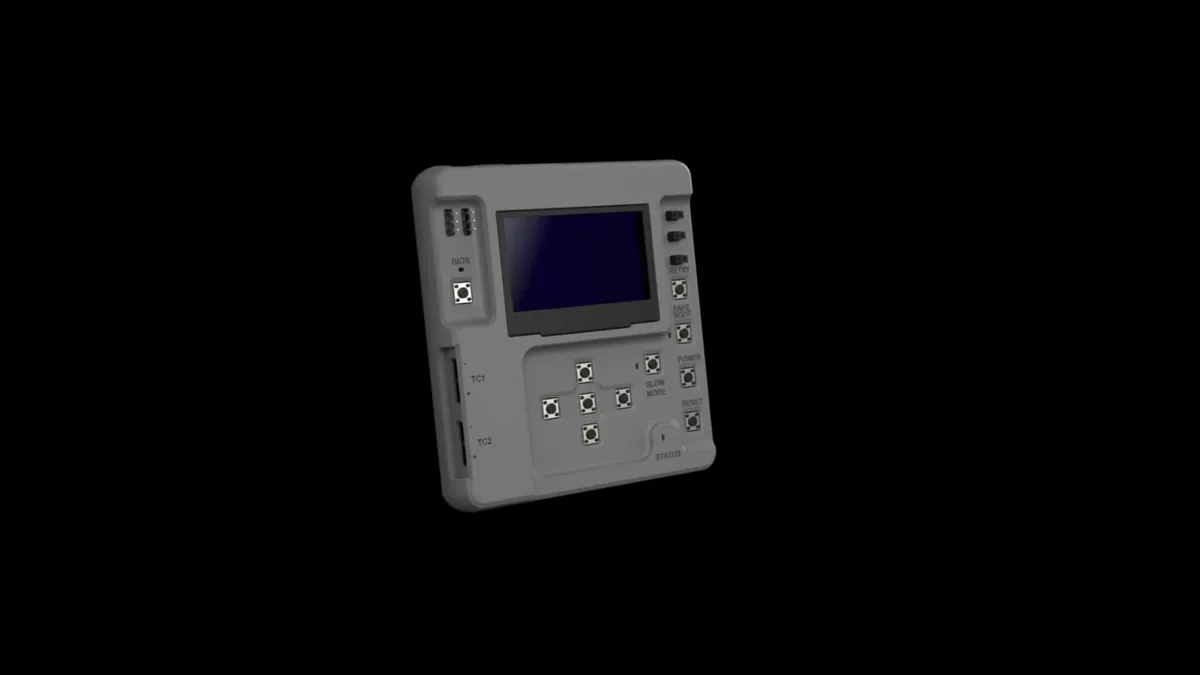Overclocker Takes DDR5 to 9058 MHz on Ryzen 7000 With Latest Firmware
Merely days after AMD launched its new memory-enhancing AGESA 1.0.0.7b substitute, HiCookie, one in every of many world’s best-known overclockers, has managed to hit over 9000 MHz on thought of one in every of his DDR5 memory kits engaged on a Ryzen 7 7800X3D system.
That is no doubt one of many quickest DDR5 overclocks we’ve seen to this point on any DDR5-supported platform, demonstrating that AM5 has rather more DDR5 overclocking potential than initially anticipated. At this cost, we’d see 10,000 MHz overclocks in a short time — and we might even see Ryzen 7000 strategies actively beating Intel’s best Alder Lake/Raptor Lake CPUs in memory overclocking for the first time ever.
The overclock was achieved with Gigabyte DDR5-8400 modules on a B650E Aorus Tacyon motherboard with a Ryzen 7 7800X3D CPU. The DDR5 modules have been overclocked to 9058 MHz with barely tighter 54-56-56-126 timings compared with the module’s default XMP configuration.

The model new AGESA 1.0.0.7b substitute is arguably most likely essentially the most impactful AMD microcode substitute we’ve seen on the AM5 platform to this point. The model new patch significantly will enhance memory help (and memory stability, by the appears of it), allowing most Ryzen 7000 CPUs to hit 7000 – 8000 MHz steadily and 6400 MHz in a 1:1 UCLK:MEMCLK ratio, which is ideal for gaming and totally different latency-sensitive duties. This could be a substantial change from earlier patches, the place 6000 MHz was the peak most Ryzen 7000 chips may hit stably. One thing previous 6000 MHz was absolutely unpredictable.
The model new substitute has a lot of new choices that enhance memory stability and enhance frequency help, nonetheless the principle change that improves higher-frequency DDR5 efficiency is a model new set of previously-hidden timing parameters that administration the Ryzen 7000 memory controller. These settings have been hidden from the patron beforehand — and possibly motherboard producers as successfully — nonetheless now they’ve opened them as a lot as clients and BIOS builders to alleviate any bottlenecks the memory controller is prone to be liable for.
If overclockers proceed to push memory overclocks like this with AMD’s new AGESA microcode substitute, this may be the first precise opponents we’ve seen from AMD regarding memory overclocking. Earlier AMD Ryzen architectures have always had inferior memory overclocking effectivity, due to the {{hardware}} limitations of their memory controllers, compared with Intel. Nonetheless now it appears to be like just like the tables is also turning, and AMD may even have the better-performing memory controller. We’ll know this rapidly adequate if memory overclockers start breaking DDR5 frequency world information on AMD {{hardware}}.






